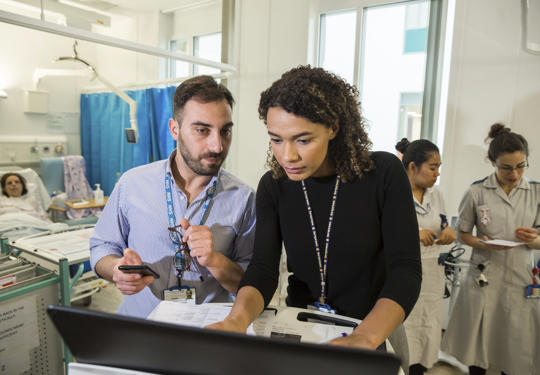The Royal College of Physicians (RCP) has written to medical directors across the NHS urging them to recognise the contribution of specialist, associate specialist and specialty (SAS) doctors and to create specialist posts where there is a workforce need.
SAS and locally employed doctors (LEDs) now make up almost a quarter of the UK medical workforce. Many have over a decade of clinical experience, work at a senior level of responsibility, and contribute significantly to patient care – yet too often, they face systemic barriers to education, career progression and leadership opportunities.
In a letter signed by RCP registrar Dr Omar Mustafa and RCP SAS lead Dr Naeem Aziz, the RCP recommends that trusts and health boards:
- fund and create new specialist posts where doctors are already working autonomously
- appoint SAS tutors and advocates with dedicated time in their job plans
- provide equitable access to continuing professional development and portfolio pathways
- encourage SAS engagement with royal college membership and leadership roles.
Dr Omar Mustafa, RCP registrar, said: ‘The NHS cannot afford to overlook the expertise and commitment of SAS and locally employed doctors. We are calling on NHS organisations to recognise and reward these colleagues by investing in their development, creating specialist posts, and ensuring they have fair access to leadership and educational roles. This is about retention, morale and ultimately delivering better patient care.’
The RCP’s 2024 guidance for doctors and employers sets out practical steps on educational and career support for SAS doctors and highlights the benefits of a better supported, more visible SAS workforce.
The college also offers dedicated opportunities for professional development, including the SAS Leadership Programme and access to clinical resources through associate membership.
Dr Naeem Aziz, RCP SAS lead, added: ‘Supporting SAS doctors is a crucial part of strengthening the NHS workforce. These doctors are already delivering excellent care across the system – it’s time we recognised their contribution and created clear routes for career progression.’





